
The Umbrellas of Cherbourg is a 1964 musical romantic drama film written and directed by Jacques Demy, with music by Michel Legrand. Catherine Deneuve and Nino Castelnuovo star as two young lovers in the French city of Cherbourg, separated by circumstance. The film's dialogue is entirely sung as recitative, including casual conversation, and is sung-through, or through-composed, like some operas and stage musicals. It has been seen as the middle part of an informal "romantic trilogy" of Demy films that share some of the same actors, characters, and overall look, coming after Lola (1961) and before The Young Girls of Rochefort (1967). The French-language film was a co-production between France and West Germany.

Michel Jean Legrand was a French musical composer, arranger, conductor, and jazz pianist. Legrand was a prolific composer, having written over 200 film and television scores, in addition to many songs. His scores for two of the films of French New Wave director Jacques Demy, The Umbrellas of Cherbourg (1964) and The Young Girls of Rochefort (1967), earned Legrand his first Academy Award nominations. Legrand won his first Oscar for the song "The Windmills of Your Mind" from The Thomas Crown Affair (1968), and additional Oscars for Summer of '42 (1971) and Barbra Streisand's Yentl (1983).
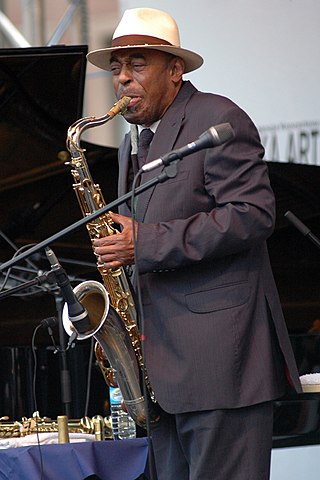
Archie Shepp is an American jazz saxophonist, educator and playwright who since the 1960s has played a central part in the development of avant-garde jazz.

Sheldon "Shelly" Manne was an American jazz drummer. Most frequently associated with West Coast jazz, he was known for his versatility and also played in a number of other styles, including Dixieland, swing, bebop, avant-garde jazz, and later fusion. He also contributed to the musical background of hundreds of Hollywood films and television programs.

The Swingles are an a capella vocal group. The Swingle Singers originally formed in 1962 in Paris under the leadership of Ward Swingle. In 1973, Swingle disbanded the French group, and formed an English group known initially as Swingle II and later as the New Swingle Singers, before settling on the Swingles name.

Attilio Joseph "Teo" Macero was an American jazz saxophonist, composer, and record producer. He was a producer at Columbia Records for twenty years. Macero produced Miles Davis' Bitches Brew and Dave Brubeck's Time Out, two of the best-selling and most influential jazz albums of all time. Macero was known for his innovative use of editing and tape manipulation unprecedented in jazz and proving influential on subsequent fusion, experimental rock, electronica, post-punk, no wave, and acid jazz.
Oja Kodar is a Croatian actress, screenwriter and director known as Orson Welles's romantic partner during the later years of his life.
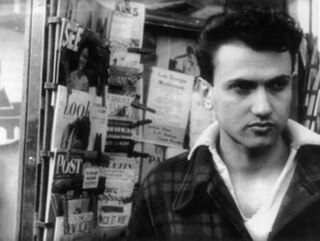
Isidore Isou, born Isidor Goldstein, was a Romanian-born French poet, dramaturge, novelist, film director, economist, and visual artist. He was the founder of Lettrism, an art and literary movement which owed inspiration to Dada and Surrealism.

The Other Side of the Wind is a 2018 satirical drama film co-written, co-edited, and directed by Orson Welles, and posthumously released in 2018 after 48 years in development. The film stars John Huston, Bob Random, Peter Bogdanovich, Susan Strasberg, and Oja Kodar.
Melissa Errico is an American actress, singer, recording artist and writer. She is known for her Broadway musical roles such as Eliza Doolittle in My Fair Lady and the title role in One Touch of Venus, as well as her recordings of musical theater classics, including albums of songs by Stephen Sondheim and Michel Legrand. In recent years she has become a contributing writer to The New York Times and served on the National Endowment for the Arts.
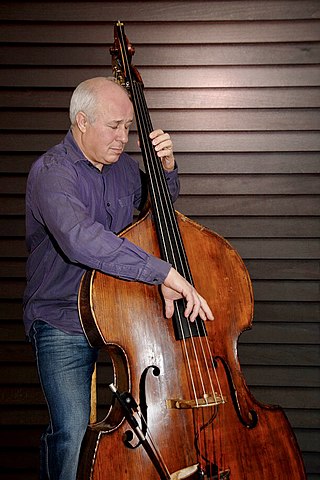
Chris Laurence is an English musician. Born in London, he studied at the Guildhall School of Music and Drama, and primarily works with jazz and classical music. In the classical world he was principal double bass with the Academy of St Martin in the Fields orchestra until 1995, playing on many of their recordings ranging from the film Amadeus to Benjamin Britten's Curlew River. He has recorded with many jazz artists, including trombonist J. J. Johnson, Tony Coe, Joe Williams, Sarah Vaughan, Clark Terry, Johnny Mathis, and Lena Horne. His most recent recordings include John Surman's The Spaces in Between (2007), Kenny Wheeler's The Long Waiting (2012) and Songs for Quintet on ECM Records, and Norma Winstone's Manhattan in the Rain (1998). He has also recorded music for television, film, and albums, most notably Leaving Las Vegas (1995), Ken Loach's Looking for Eric (2009), The Constant Gardener (2005), Howard Shore's score for Hugo (2011), and most recently was featured on the soundtrack of Mike Leigh's Mr. Turner (2014). In 2007, he recorded a CD with his own jazz quartet titled New View, released on the Basho label along with Frank Ricotti (vibes), John Parricelli (guitar), Martin France (drums), and featuring Norma Winstone (vocals).

Orson Welles (1915–1985) was an American director, actor, writer, and producer who is best remembered for his innovative work in radio, theatre and film. He is widely considered one of the greatest and most influential filmmakers of all time.
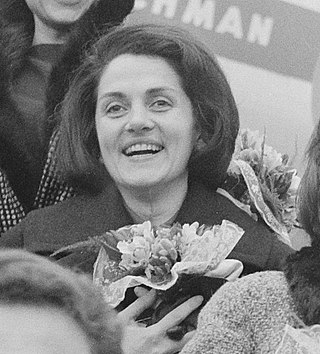
Christiane Legrand was a French soprano.
Filip Jan Rymsza is a Polish-born filmmaker and writer. He is best known for, along with fellow producer Frank Marshall, spearheading the successful completion of Orson Welles' last major work, The Other Side of the Wind. Filmed in the early 1970s but not fully edited, the completed movie debuted at the 75th annual Venice Film Festival in August 2018. He was also a producer on the award-winning Morgan Neville documentary They'll Love Me When I'm Dead.

Alan Bergman and Marilyn Keith Bergman were an American songwriting duo. Married from 1958 until Marilyn's death, together they wrote music and lyrics for numerous celebrated television, film, and stage productions. The Bergmans enjoyed a successful career, honored with four Emmys, three Oscars, and two Grammys. They are in the Songwriters Hall of Fame.
Beatrice Giuditta Welles is an American former child actress, known for her roles in the film Chimes at Midnight (1966) and the documentary travelogue In the Land of Don Quixote (1964). The daughter of American filmmaker Orson Welles and Italian actress Paola Mori, she is a former model, radio and TV personality, founder of a cosmetics line and designer of handbags and jewelry.
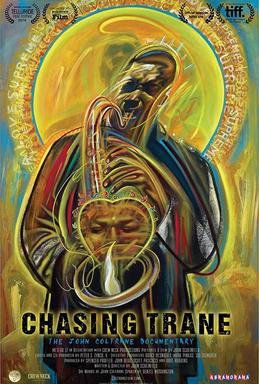
Chasing Trane: The John Coltrane Documentary is a 2017 American documentary film, written and directed by John Scheinfeld.

They'll Love Me When I'm Dead is a 2018 American documentary film, directed by Morgan Neville. It documents the ill-fated production of The Other Side of the Wind, directed by Orson Welles. The film had its world premiere at the Venice Film Festival on August 30, 2018. It was released on November 2, 2018, by Netflix.

A Final Cut for Orson: 40 Years in the Making is a 2018 American documentary short, directed by Ryan Suffern, revolving around the completion of The Other Side of the Wind, directed by Orson Welles. It offers a glimpse behind the scenes into the complicated process of recovering and completing what Welles had intended to be his Hollywood comeback film in the 1970s. The documentary short and The Other Side of the Wind were produced by Frank Marshall and Filip Jan Rymsza.
Passing Through is a 1977 American film directed by Larry Clark and co-written by Clark and Ted Lange.















